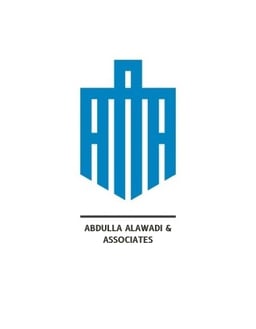
United Arab Emirates
Directory


Addleshaw Goddard

ADG Legal

Afridi & Angell

Akazim Advocates & Legal Consultants

Akin

Al Mansoori & Partners

Al Naqbi & Partners (ANP)

Al Tamimi & Company

Alem & Associates

Alsuwaidi & Company

AMERELLER

Anjarwalla Collins & Haidermota (AC&H)

Ashurst

Audiri Vox

Awatif Mohammad Shoqi Advocates & Legal Consultancy

Baker Botts L.L.P.

Baker McKenzie LLP

Beale & Company Solicitors LLP

Bin Sevan Advocates & Legal Consultants

Bird & Bird LLP

BonelliErede

Bracewell LLP

BSA LAW

Charles Russell Speechlys LLP

Cleary Gottlieb Steen & Hamilton

Clifford Chance
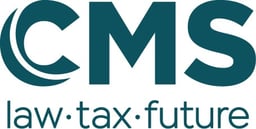
CMS

Curtis, Mallet-Prevost, Colt & Mosle LLP

D&C Legal Services

Dechert LLP

Dentons

Devine & Severova

DLA Piper

Fatma Al Mutawa Advocates and Legal Consultants

Fenwick Elliott LLP

Fichte & Co.

Futura Digital

Gaillard Banifatemi Shelbaya Disputes
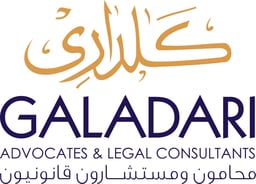
Galadari Advocates & Legal Consultants

GLA & Company
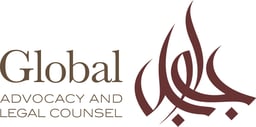
Global Advocacy and Legal Counsel

Greenberg Traurig Khalid Al-Thebity Law Firm

Habib Al Mulla & Partners
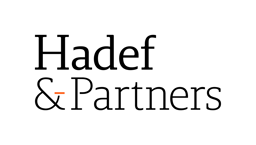
Hadef & Partners

HAS Law Firm

Herbert Smith Freehills Kramer LLP

HFW

Hogan Lovells (United Arab Emirates) LLP

Horizons & Co Law Firm LLC

Hourani & Partners

Hunton Andrews Kurth LLP

Ibrahim N Partners

Ingmires Limited

Jones Day

K&L Gates

KADEN BORISS LEGAL CONSULTANCY

KARM Legal Consultants

KBH Limited

Kennedys

King & Spalding

Knightsbridge Group

Latham & Watkins LLP

Linklaters

LPA Law

Maples Group

Matouk Bassiouny UAE

Mayer Brown

Meysan Partners LLP

Morgan, Lewis & Bockius LLP

MRP Advisory LLC

NHB Legal

Norton Rose Fulbright

NYK Law Firm

Obeid & Medawar Law Firm LLP

Obeid & Partners

Ogier

Prime Law Firm

Quinn Emanuel Urquhart & Sullivan, LLP

Ruthberg LLC

SAT & Co.

SCHLÜTER GRAF Legal Consultants

Simmons & Simmons Middle East LLP

Skadden, Arps, Slate, Meagher & Flom LLP

Stefani Legal Consultants

Stephenson Harwood Middle East LLP
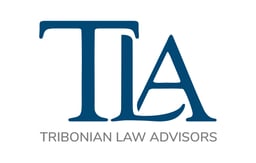
Tribonian Law Advisors

Trowers & Hamlins LLP

TWS Legal Consultants

Vinson & Elkins LLP

Walkers

Watson Farley & Williams

Webber Wentzel

White & Case LLP

William Fry LLP
Firms in the Spotlight

Fichte & Co.
Established by Jasmin Fichte in 2005 in Dubai, Fichte & Co is a full-service law firm comprised of an experienced international team of experts.

HAS Law Firm
With commitment to legal excellence and innovation, Hamdan AlShamsi Lawyer and Legal Consultants (HAS) is a full-service Dubai based law firm operating at international standards.
Across all the U

Awatif Mohammad Shoqi Advocates & Legal Consultancy
Our strong practice areas are family law, criminal law, civil law, corporate & commercial, banking, maritime & transport, labor, litigation, arbitration, and real estate. Our team of lawyers, advisors

HAS Law Firm
Founded in 2010 by Hamdan Alshamsi expert UAE litigation practitioner, Hamdan Alshamsi lawyers & Legal Consultants (“HAS”) legal practice provides sector expertise at both local and international leve
Interviews
View
Amir Alkhaja, Managing Partner
Habib Al Mulla & Partners

Abubaker Karmustaji, Co-Founder & Head of Dispute Resolution Practice
SAT & Co.

Yasir Al Naqbi, Founding Partner
Al Naqbi & Partners (ANP)

Nita Maru, Managing Partner & Solicitor
TWS Legal Consultants

Sadiq Jafar, Managing Partner
Hadef & Partners

Kim Medina, Director of Legal and Compliance
Knightsbridge Group
Galadari Advocates & Legal Consultant
Galadari Advocates & Legal Consultants

Jasmin Fichte, Managing Partner
Fichte & Co.

Mohammed Al Dahbashi, Managing Partner, ADG Legal
ADG Legal

Mr. Hamdan Alshamsi, Senior partner & Founder
HAS Law Firm
News & Developments
ViewCommercial, corporate and M&A
Income Tax in Oman: How Residents Should Prepare Their Assets
The introduction of personal income tax in Oman marks a structural shift in the Sultanate’s fiscal landscape. For decades, Oman, like much of the GCC, has operated without personal income tax, allowing residents to hold local and international assets with limited tax friction.
That environment is now changing.
While final regulations, thresholds, and implementation timelines are still being clarified, the direction of travel is clear: Omani residents will soon need to manage personal income tax exposure in a way that was previously unnecessary. Those who act early will have significantly more planning options than those who wait until legislation is fully in force.
This article outlines how Omani residents should begin reviewing and restructuring their local and international assets, lawfully and compliantly, in anticipation of income tax.
Why Early Restructuring Matters
Once income tax rules are enacted, restructuring becomes reactive, constrained, and often more expensive. Prior to implementation, individuals retain flexibility to:
Reorganise ownership structures
Separate personal income from investment income
Reposition assets geographically and legally
Establish compliant holding and succession vehicles
Early planning is not about avoiding tax, it is about ensuring tax efficiency, legal certainty, and long-term protection.
Step One: Understand What May Become Taxable
Although final legislation is pending, international norms suggest that future Omani income tax may apply to:
Employment and consultancy income
Dividends and distributions
Rental income
Business profits
Certain foreign-sourced income, depending on residency rules
This makes asset location and ownership structure far more important than before.
Rethinking Personal Ownership Structures
Many Omani residents currently hold assets personally, including:
Overseas real estate
Share portfolios
Operating companies
Family businesses
Intellectual property
Under an income tax regime, personal ownership can lead to:
Annual taxable income exposure
Reporting complexity
Succession and estate complications
Restructuring ownership, before income tax applies, can materially change outcomes.
Separating Personal Income from Investment Assets
A key principle of modern tax planning is segregation.
Rather than receiving income personally, investors may consider:
Holding assets through corporate or foundation structures
Retaining profits at the holding-entity level
Controlling the timing and nature of distributions
This does not remove tax obligations, but it allows income to be managed, timed, and structured more efficiently.
Using Foundations and Holding Vehicles
Well-designed structures can play a central role in income tax planning.
Foundations and Similar Vehicles:
When used appropriately, foundations can:
Separate personal wealth from income-producing assets
Support long-term succession planning
Provide clarity around beneficiary distributions
Reduce fragmented personal income flows
Corporate Holding Companies
Holding companies can:
Consolidate global investments
Centralise dividend and rental income
Facilitate reinvestment rather than forced distribution
Support international tax coordination
The suitability of each structure depends on the individual’s residency, asset mix, and family circumstances.
Reviewing International Assets and Residency Exposure
Omani residents with overseas assets should conduct a jurisdiction-by-jurisdiction review, including:
Where income is generated
Where assets are legally held
How double-taxation treaties may apply
Whether current structures create unintended reporting or tax exposure
In many cases, assets were acquired under the assumption of zero personal income tax. That assumption must now be revisited.
Succession Planning Takes on New Importance
Income tax often accelerates the need for clear succession planning.
Without proper structuring, families may face:
Ongoing income tax leakage across generations
Fragmentation of asset ownership
Cross-border probate and estate issues
Restructuring now allows succession to be addressed before tax rules lock in future outcomes.
What Omani Residents Should Do Now
Before income tax legislation takes effect, residents should:
Map all personal and international assets
Identify income streams versus capital assets
Review current ownership structures
Model future income tax exposure
Consider compliant restructuring options early
This process should be conducted with legal, tax, and cross-border coordination, not in isolation.
A Note on Compliance
All restructuring should be:
Fully compliant with Omani law
Aligned with international tax standards
Defensible under scrutiny
Properly documented
Aggressive or artificial arrangements create long-term risk. The objective is resilience, not short-term minimisation.
How Knightsbridge Group Can Assist
Knightsbridge Group advises Omani residents, families, and entrepreneurs on pre-income-tax restructuring, including:
Asset and income mapping
Ownership and holding-structure design
Foundation and succession planning
Cross-border tax coordination
Long-term wealth and residency planning
Our approach is strategic, conservative, and designed to withstand future regulatory change.
Final Thought
Income tax in Oman is not a crisis, but it is a planning deadline.
Those who restructure early retain control. Those who wait may find their options narrowed.
Knightsbridge Group - February 20 2026
Panama Investor Programme: Residency by Investment with a Pathway to Citizenship
Panama has formally launched an enhanced Investor Programme designed to attract high-quality foreign capital, strengthen its position as a regional business hub, and offer internationally mobile investors a clear, regulated pathway to permanent residency and eventual citizenship.
The programme combines Panama’s long-established territorial tax system, strategic geographic importance, and flexible residency requirements, making it an increasingly attractive option for investors seeking access to the Americas without full relocation.
Why Panama?
Panama occupies a unique position in global trade and finance. As home to the Panama Canal, a non-substitutable global trade chokepoint handling approximately 5–6% of world maritime trade, the country plays a central role in international logistics and supply chains. In 2025 alone, canal revenues exceeded USD 5.7 billion, underscoring Panama’s economic resilience and strategic relevance.
Key macro-economic and structural advantages highlighted in the programme include:
A fully dollarised economy, aligned with US financial markets
A territorial tax regime, with no tax on foreign-sourced income
Strong GDP growth and low inflation
A sophisticated banking and corporate services ecosystem
Free trade agreements with the United States and multiple Latin American jurisdictions
Overview of the Panama Investor Programme
The Panama Investor Programme grants permanent residency through a fast-tracked process, with minimal physical presence requirements and a clearly defined route to citizenship.
Key Programme Features
Permanent residency granted through a streamlined application
Minimal physical presence: one visit to Panama every two years
Family inclusion, covering spouse, dependent children, and dependent parents
Eligibility for Panamanian citizenship after five years of maintained investment and residency
No requirement to reside in Panama during the application process
Investment Requirement
Applicants must make a minimum qualifying investment of USD 300,000, with funds originating from abroad and supported by a clean criminal record.
The programme is structured around government-approved investment options, primarily in real estate and hospitality developments, with investments held through regulated legal and fiduciary frameworks.
Approved Investment Structures
Trust-Based Safeguards (Fideicomiso)
All qualifying investments are channelled through a licensed Panamanian trust structure, designed to protect both the investor and the project developer. The trust:
Holds investor funds securely
Releases capital in tranches based on contractual milestones
Does not constitute a collective investment scheme or financing vehicle
This structure enhances investor protection and regulatory transparency.
Investment Options Overview
The programme currently features multiple real-estate-backed investment routes, including:
Option 1: Branded Hotel & Casino Co-Ownership
Investment: USD 300,000
Co-ownership in a 5-star branded hotel and casino in Panama City
No annual yield; guaranteed buy-back after five years
Designed primarily to satisfy residency and citizenship eligibility
Option 2: Individually Owned Branded Suites
Individual title deed ownership
Rental income split with professional operator
Estimated annual returns of 5–6%
One month of personal use per year
Option 3: Luxury Residential Apartments
Investment range: USD 300,000–450,000
Located in Santa María, one of Panama City’s most prestigious residential districts
Full ownership with optional rental management
Estimated returns of 3–5% annually
Pathway to Panamanian Citizenship
After five years of continuous residency under the programme, investors become eligible to apply for Panamanian citizenship, subject to prevailing nationality laws and due diligence requirements.
Benefits of Panamanian Citizenship
A top-30 ranked passport with visa-free access to over 140 countries, including the Schengen Area
Eligibility for the US E-2 Treaty Investor Visa
No worldwide income tax by citizenship
Right to live and work in Panama
Access to Panama’s healthcare, education, and business environment
Strategic Considerations
The Panama Investor Programme is particularly suitable for:
Investors seeking Americas access without full relocation
Families looking for tax-efficient, long-term mobility planning
Entrepreneurs interested in US-linked trade and treaty opportunities
Clients seeking a regulated, low-presence route to citizenship
As with all residency and citizenship pathways, the programme should be integrated into a broader legal, tax, and asset-structuring strategy.
How Knightsbridge Group Can Assist
Knightsbridge Group advises private clients and investors on:
Panama residency and citizenship suitability assessments
Investment structuring and legal due diligence
Family inclusion and long-term succession planning
Cross-border tax coordination
Ongoing compliance and residency maintenance
Our approach is strategic, compliant, and aligned with each client’s wider international objectives.
Knightsbridge Group - February 11 2026
UK Travel Rule Changes 2026: What Every International Traveller Needs to Know
Starting in February 2026, the United Kingdom will introduce major changes to its travel entry requirements – affecting how visitors, dual citizens, and frequent travellers enter the country.
These updates are among the most significant in decades and can affect travel planning, airline check-in procedures, and documentation requirements.
Key Change: “No Permission, No Travel”
From 25 February 2026, the UK will fully enforce its Electronic Travel Authorisation (ETA) system – a digital pre-travel permission designed to streamline immigration checks and improve border security. Under this new regime:
Most visa-free travellers (e.g., citizens of the United States, Canada, EU, Australia, and other eligible countries) must obtain an ETA before departure, even for short visits.
Airlines, ferry operators, and rail carriers will deny boarding to travellers who do not hold an approved ETA or valid UK immigration status at check-in.
An ETA is not a visa; it is a mandatory travel authorisation for eligible visitors.
The timing and enforcement of this system are part of the UK Government’s broader plan to digitise its border controls, similar to systems such as the U.S. ESTA or Canada eTA.
What This Means for Different Travellers
1. Visa-Exempt Visitors
If you currently enter the UK without a visa – for tourism, business, or short-term trips – you must secure an ETA before travel. This includes travellers from:
United States
Canada
Australia
New Zealand
EU/EEA countries
and several other eligible passport holders.
The ETA application is digital and typically processed within days, but authorities recommend applying well in advance of travel to avoid disruptions.
2. British and Irish Citizens (Including Dual Nationals)
British and Irish citizens are exempt from needing an ETA, as they do not require formal authorisation to enter the UK.
However, the way their status is checked has changed:
Dual British citizens (those holding another nationality as well as British citizenship) are now expected to travel on a British passport when entering the UK.
Travelling on a foreign passport alone, even one that would normally permit visa-free travel, is no longer accepted because:
Dual citizens cannot obtain an ETA with the foreign passport
Carriers must confirm travel authorisation prior to boarding
If they cannot demonstrate exemption, airlines may refuse boarding.
Alternatively, British citizens can use a Certificate of Entitlement to the Right of Abode in a foreign passport to prove their right to enter, although this is a less common and more expensive option.
3. Implications for Frequent and Business Travellers
For regular travellers, global mobility teams, and organisations that send staff to the UK:
Passport and travel document tracking becomes critical
Travel policies must be updated to ensure valid ETAs are obtained before booking flights
Expired passports or mismatched digital records can trigger boarding refusals or entry delays
Companies and frequent flyers must ensure that documentation evidence clearly matches immigration status at the point of departure — not just at entry.
Why These Changes Matter
The enforcement of the ETA regime represents a shift from post-arrival checks to pre-departure screening. Previously, many carriers relied on later border checks to resolve eligibility questions. From February 2026, UK border policy will operate much more like the modern “no permission, no travel” systems seen in North America and parts of Asia.
This means lawful status alone, such as having the legal right to enter the UK, is not enough unless it can be evidenced in an airline-verifiable format (passport, ETA, visa, or approved certificate).
Practical Steps for Travellers
Here’s how to prepare for the new rules:
Check if you need an ETA. Most visa-free nationalities do.
Apply early through the official UK ETA portal, decisions can take up to a few days.
Ensure your passport is valid and matches your ETA application.
If you are a dual British citizen, travel using your British passport or obtain a Certificate of Entitlement.
Check carrier requirements before booking, carriers will enforce airside checks from 25 February 2026.
What Has Not Changed
While travel requirements and document checks are evolving:
The legal right to enter the UK for British citizens has not changed
Changes do not affect visa conditions for longer-term stays, work visas, or residence permits
Irish citizens still enjoy Common Travel Area rights, but must use appropriate identity documents aligned with UK and Irish border requirements
Final Thought
The UK’s travel regime in 2026 reflects a global trend toward greater pre-departure screening and digital authorisation frameworks. For international travellers, dual citizens, and global mobile professionals, understanding and adapting to these changes now will avoid costly disruptions, denied boardings, or last-minute complications.
Knightsbridge Group - February 4 2026
Press Releases
SAT & CO Welcomes Emad Saad Elhabbak as Senior Legal Advisor
Dubai, UAE – 1 February– SAT & CO is pleased to announce the appointment of Emad Saad Elhabbak as Senior Legal Advisor, further strengthening the firm’s Dispute Resolution and Commercial Advisory capabilities.
Emad brings over 25 years of experience in civil, commercial, and maritime law, including more than two decades in senior advisory roles at one of the UAE’s leading local practices. Throughout his career, Emad has advised individuals, corporations, and commercial institutions on complex matters, representing clients before courts at all levels, including the Courts of First Instance, Appeal, and Cassation. Known for his strong procedural expertise and strategic insight, he has led high-value litigation strategies, drafted and negotiated sophisticated commercial and shipping agreements, supported senior management with high-level legal guidance, and successfully managed technically complex disputes from initial assessment through to final judgment, enforcement, and alternative dispute resolution, including arbitration and negotiated settlements.
Emad’s appointment reflects SAT & CO’s ongoing commitment to expanding its senior advisory capabilities and delivering sophisticated, results-driven legal services to its growing client base across the UAE and internationally. His addition further supports the firm’s strategic vision to grow its market presence and develop innovative solutions for complex commercial and maritime challenges.
Emad Saad Elhabbak said: “I am pleased to join SAT & CO and become part of a firm known for its strong market presence and professional excellence. I look forward to contributing my experience to support the firm’s clients and to working closely with the team to deliver practical, strategic, and high-quality legal solutions.”
Salah Al Blooshi, Co-Founder and Managing Partner at SAT & CO, commented: “Emad’s expertise and deep knowledge of civil, commercial, and maritime law bring a fresh perspective to our advisory practice. His appointment aligns with the firm’s growth ambitions and vision to deliver innovative, high-impact solutions, ensuring our clients continue to benefit from both strategic guidance and operational excellence.”
About SAT & CO
SAT & CO is a full-service law firm based in the United Arab Emirates, known for its sharp legal expertise and deep roots in the local market. The firm advises a diverse portfolio of clients, from individuals to multinational corporations, across sectors such as oil and gas, real estate, finance, insurance, telecoms, and gold trading. Its Dispute Resolution department is recognised for handling high-value, complex litigation and enforcement proceedings, with matters exceeding AED 2.5 billion in claims over the past year. SAT & CO combines deep local knowledge with international experience, offering a pragmatic and strategic approach to legal problem-solving.
For more information and interview enquiries, please contact:
Ksenia Ozerova
Business Development & Marketing Manager
+971 4 5514441
[email protected]
www.sat-law.com
SAT & Co. - February 4 2026